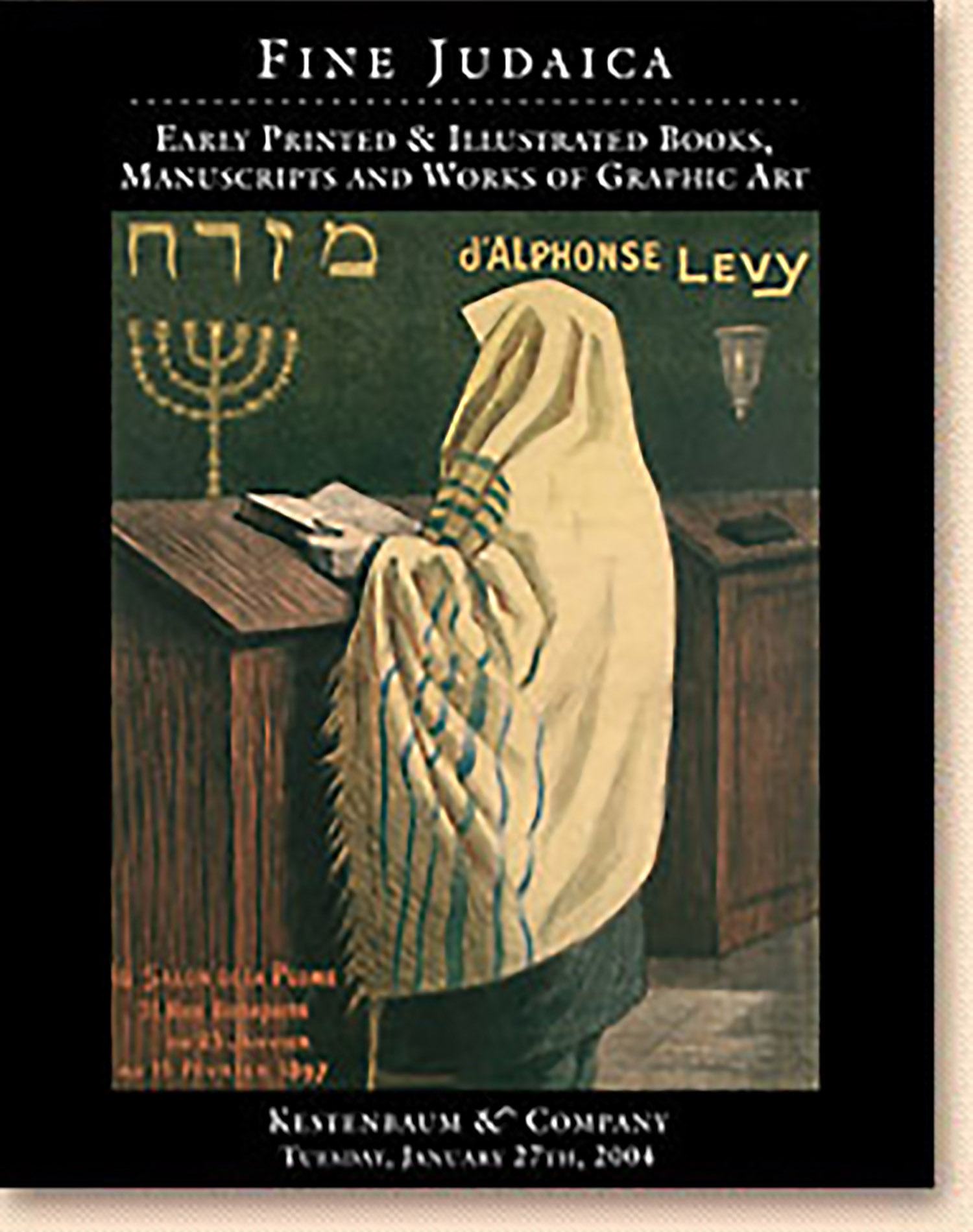(MaHaRSH”L). Atereth Shlomo [novellae to Isaac Dueren’s Shaarei Dura]. * BOUND WITH: Amudei Shlomo [commentary to Moses of Coucy’s Rabbinic Code, Sepher Mitzvoth Gadol]

AUCTION 22 |
Tuesday, January 27th,
2004 at 1:00
Fine Judaica: Printed Books, Manuscripts and Works of Graphic Art Including Holy Land Maps, Illustrated Books, Photography and Graphic Art from The Collection of Daniel M. Friedenberg of Greenwich, Conn
Lot 126
LURIA, SOLOMON
(MaHaRSH”L). Atereth Shlomo [novellae to Isaac Dueren’s Shaarei Dura]. * BOUND WITH: Amudei Shlomo [commentary to Moses of Coucy’s Rabbinic Code, Sepher Mitzvoth Gadol]
Basle: Konrad Waldkirch 1599, 1600
Est: $500 - $700
PRICE REALIZED $550
R. Solomon Luria (1510?-1574) was arguably the greatest Polish rabbi of his day, along with his younger contemporary and relative, Moses Isserles (of whom he was highly critical).The MaHaRSHaL is appreciated for his clarity and orderly, erudite presentation. His comments to these classic codices indicate which particular texts were studied in the 16th century.
The compendium by R. Moses of Coucy (13th century), Sepher Mitzvoth Gadol (SeMaG), divided into two parts - negative and positive commandments - is probably the most important classification of the 613 commandments after Maimonides' Sepher ha-Mitzvoth. One of the primary differences between these two Codes is that SeMaG includes much aggadic material, whereas Maimonides restricted himself to purely halachic matters. See EJ, vol. XII, cols. 419-420.
R. Isaac of Dueren (second half of 13th century) was a preeminent German halakhic authority. His Sha'arei Dura is one of the most important codes concerning dietary and menstrual laws. See EJ VI, col. 262.
The editor, R. Elijah Loanz, a disciple of the MaHaRaL of Prague, was an outstanding kabbalist of Germany. A grandson of R. Joselmann of Rosheim, he was popularly known as R. Elijah Ba’al Shem, in respect of his abilities to treat the sick
